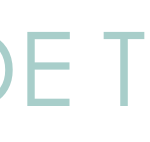This article by Nidhi Chaudhary addresses the issue of investing in women, which will also be covered in SOCAP12 sessions – ‘Gender Lens: Unnecessary Investment Lens or Increased Possibilities‘ and ‘The Gender Lens on Energy Investment: Women for Women Initiatives’. The article was originally published on Echoing Green and by SOCAP12 media partner, Dowser. Look for more stories from Dowser out of SOCAP12.
—
We know that women-led companies generate consistent revenues; boards with women show higher shareholder returns than those without; investments in women, particularly in the developing world, yield high return rates and benefits for the entire family. This is all old news. Right?
Again and again, academics, scholars, and practitioners are telling us that the world will just be a better place if we paid more attention to women. According to a recent Nielsen report, women dominate social networks; in the State of Women-Owned Businesses Report, American Express finds that women-owned businesses in the U.S. generate $1.3 trillion in revenues annually; and in September 2009,Boston Consulting Group found that women controlled $12 trillion of the overall $18.4 trillion in global consumer spending. Michael Silverstein, a Managing Director at BCG and author of Women Want More, says “Women will be the greatest single force for economic recovery.”
The world cannot afford—quite literally—to leave women behind.
 FastCompany’s League of Extraordinary Women includes several social entrepreneurs, philanthropists, and heads of foundations—many of whom are working to drive positive social change for other girls and women around the world. Gabby Douglas, Missy Franklin, and Holly Mangold, are all pushing boundaries on age, race, shape. For the first time ever, every country participating in the London 2012 Olympics sent a woman to compete in the games; and also for the first time, more women than men represented the United States contingent.
FastCompany’s League of Extraordinary Women includes several social entrepreneurs, philanthropists, and heads of foundations—many of whom are working to drive positive social change for other girls and women around the world. Gabby Douglas, Missy Franklin, and Holly Mangold, are all pushing boundaries on age, race, shape. For the first time ever, every country participating in the London 2012 Olympics sent a woman to compete in the games; and also for the first time, more women than men represented the United States contingent.
Yet, we recently learned that among the rich G20 nations, India has been labeled the worst place to be a woman. In Save the Children’s annual State of the World’s Mothers report, only eight out of 165 countries had at least forty percent of government seats held by women—with only Rwanda over fifty percent. The boards of one in ten Fortune 500 companies include no women, and in its seven-year history, Facebook added Sheryl Sandberg to its board (even though women represent fifty-eight percent of their customer base).
Anne-Marie Slaughter, a mother and woman with extensive public policy credentials, including former dean of Princeton’s Woodrow Wilson School, stirred an extraordinary response from both women and men with her recent article in The Atlantic wondering “why women can’t have it all” (if you haven’t read it, that assertion alone should make you want to.) She articulates a thoughtful commentary with stories from her own life and that of her students and colleagues at Princeton and The State Department. Shifting policies, pioneering leaders, and lone rule-breakers are slowly chipping away at the “glass-ceiling,” yet women continue to struggle with how to have a successful career while achieving their personal goals, like being a present mother. Charging toward this goal of “having it all” feels vague and circumspect, since its definition can vary with each of us.
Instead, let’s focus our goals on increasing opportunity and cultivating and recognizing potential. After all, with women’s collective wealth, intelligence, buying power, and influence, they—at the very least—deserve our recognition.
Echoing Green has been talking about women and social entrepreneurship for the past few years, with strong reactions and opinions from communities around the world. For all of the above-mentioned reasons and more, we are making a concerted effort to encourage stronger Fellowship applications from female entrepreneurs. While we saw a small percentage drop in applications from women from 2011 to 2012, they were on par with men at the Semifinalist stage. An even closer look at application statistics shows that more women are exploring for-profit or hybrid business models—a significant shift from the last five years.
But, we know that our work is nowhere near complete.
Of the twenty social enterprises we are supporting in the 2012 Echoing Green Fellowship class, nine include leadership teams with women. They are addressing big social issues like civil and human rights, poverty alleviation, and food security. Carrie Ferrence and Jacqueline Gjurgevich, co-founders of Stockbox Grocers, are improving access to fresh food and produce in urban food deserts, starting in Washington; Anushka Ratnayake, founder of myAgro, is partnering with small-scale farmers in Bamako to create a mobile savings program; and Serita Fox, founder of iFoster, is supplying at-risk youth in the United States with the tools to become successful, independent adults.
If you dig a little deeper, you will discover that five of the Fellows have MBA’s, three are lawyers, seven are married, and two are mothers. They have strong roots in the problems they are seeking to solve. Sarah Belal is a trained lawyer and registered to practice in both the U.K. and Pakistan; Anushka started Kiva’s Fellow Program and worked for 2006 Echoing Green FellowAndrew Youn in Kenya (whose organization, The One Acre Fund, is also one of her first investors); a former consultant at Bain, Esther Wang has worked in China and four sub-Saharan African countries across sectors of health, agriculture, and economic development.
Women are challenging the status quo, to push into the “boy’s club,” and to charge after local and global issues (they have been doing so for quite some time now). It’s our responsibility, as a community of investors, mentors, and leaders, to do more than just take notice.
But, this isn’t a commentary on what women can and cannot do, nor do we want to discount our male Fellows, who are exceptional in their own right. Instead, this is a challenge to push past this rhetoric of “we need to invest in women because they yield results”—and focus on the how, the who, and with how much money. The why should no longer be a question.
Gayle Lemmon, author and expert on women entrepreneurs around the world, says, “Women can no longer be half the population and a special interest group.” She’s right, but we’re not there yet.
We already know it will be worth it, so let’s work a little harder to get there.
Cover image: Women from all over Côte d’Ivoire gather to celebrate International Women’s Day at the Palais de la Culture in Abidjan. 8/Mar/2005. Abidjan, Côte d’Ivoire. UN Photo/Ky Chung
Powered by:






